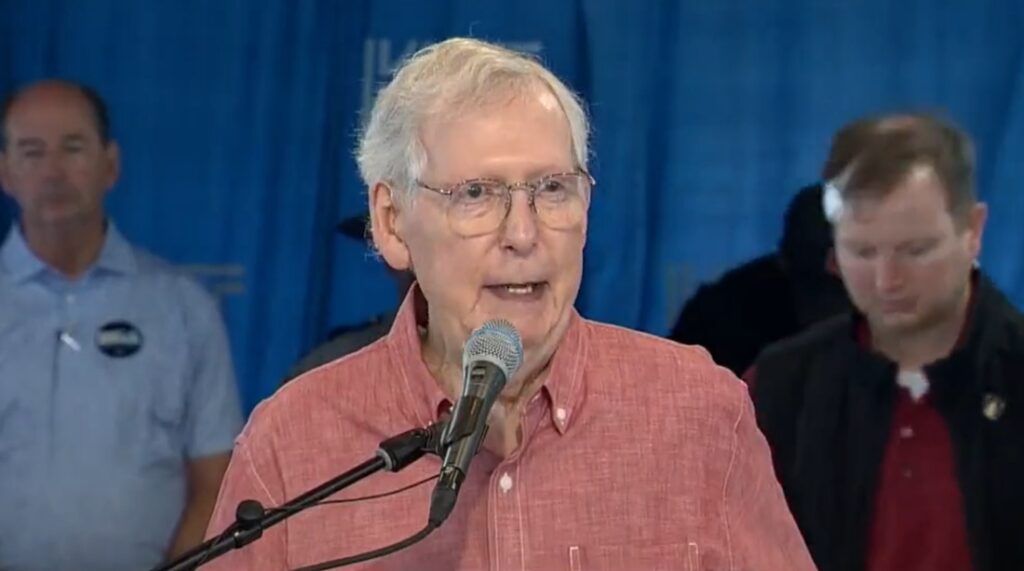Senate Republican Leader Mitch McConnell often remarks that politicians come to Washington for one of two reasons: “to make a point or to make a difference.” During his record-breaking 18-year tenure as the Senate GOP leader, McConnell has achieved both, though colleagues emphasize that his legacy will be defined by the latter. “He came here to make a difference. He’s done that,” Sen. Mike Rounds, South Dakota Republican, told The Washington Times. “And he still appreciates working with members who have the same philosophy that he does.”
And while President-elect Donald Trump would likely disagree with that assessment, he most certainly approves of the Kentucky Republican’s next move. McConnell, who turns 83 next month, is stepping down from his leadership role but will remain in the Senate for the 119th Congress, serving as chair of the Senate Rules Committee and the Appropriations Defense Subcommittee. As the new Congress convenes on Friday, Sen. John Thune of South Dakota, the current Republican whip, will assume the position of top GOP leader, the Times reported.
In a recent floor speech paying tribute to Mitch McConnell, Sen. John Thune highlighted three defining traits of McConnell’s long tenure: his mastery of intricate Senate procedures, his “fierce commitment” to the institution, and his pivotal role in confirming judges who uphold the rule of law. McConnell’s leadership in judicial confirmations—234 in total during his time as majority leader, including three Supreme Court justices—was a recurring theme mentioned by every Republican senator interviewed by The Washington Times for this report.
“The highlight would have to be his ability to get a lot of judges placed on the various courts that are going to interpret the law versus make new law — from the Supreme Court on down,” said Sen. John Boozman, Arkansas Republican. Sen. John Hoeven, a Republican from North Dakota, emphasized the significant influence of Mitch McConnell’s judicial confirmations, describing them as having a “big, big impact” on decisions made by the Supreme Court, as well as district and circuit courts. “Sometimes people say, ‘Oh, he’s not conservative.’ He actually is conservative, and that’s a good reflection of how he’s had an impact for conservatives,” said Hoeven.
Mitch McConnell also championed conservative priorities through the 2011 debt limit deal he negotiated with then-Vice President Joseph R. Biden. The resulting Budget Control Act of 2011 established decade-long discretionary spending caps, enforced by automatic budget sequestration. Senators noted, however, that McConnell’s legacy extends beyond his tangible accomplishments and leadership, reflecting his broader impact on the institution, the Times said.
A leaked message sparked outrage last month after it allegedly revealed a plan by McConnell to obstruct President-elect Donald Trump’s nominations. New Yorker staff writer Jane Mayer initially posted, then deleted, a social media post claiming that the outgoing Senate Minority Leader intended to undermine Trump’s agenda. The report quickly gained traction on X after Mayer wrote on Sunday: “Message to Trump Team: ‘There will be no recess appointments,’ Sen. Mitch McConnell said tonight at a Washington gathering.” But then, some pointed out that something “sketchy” had happened as GOP Sen. Mike Lee of Utah asked why the post was taken down.



